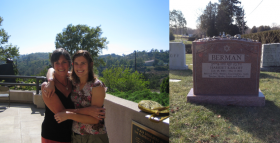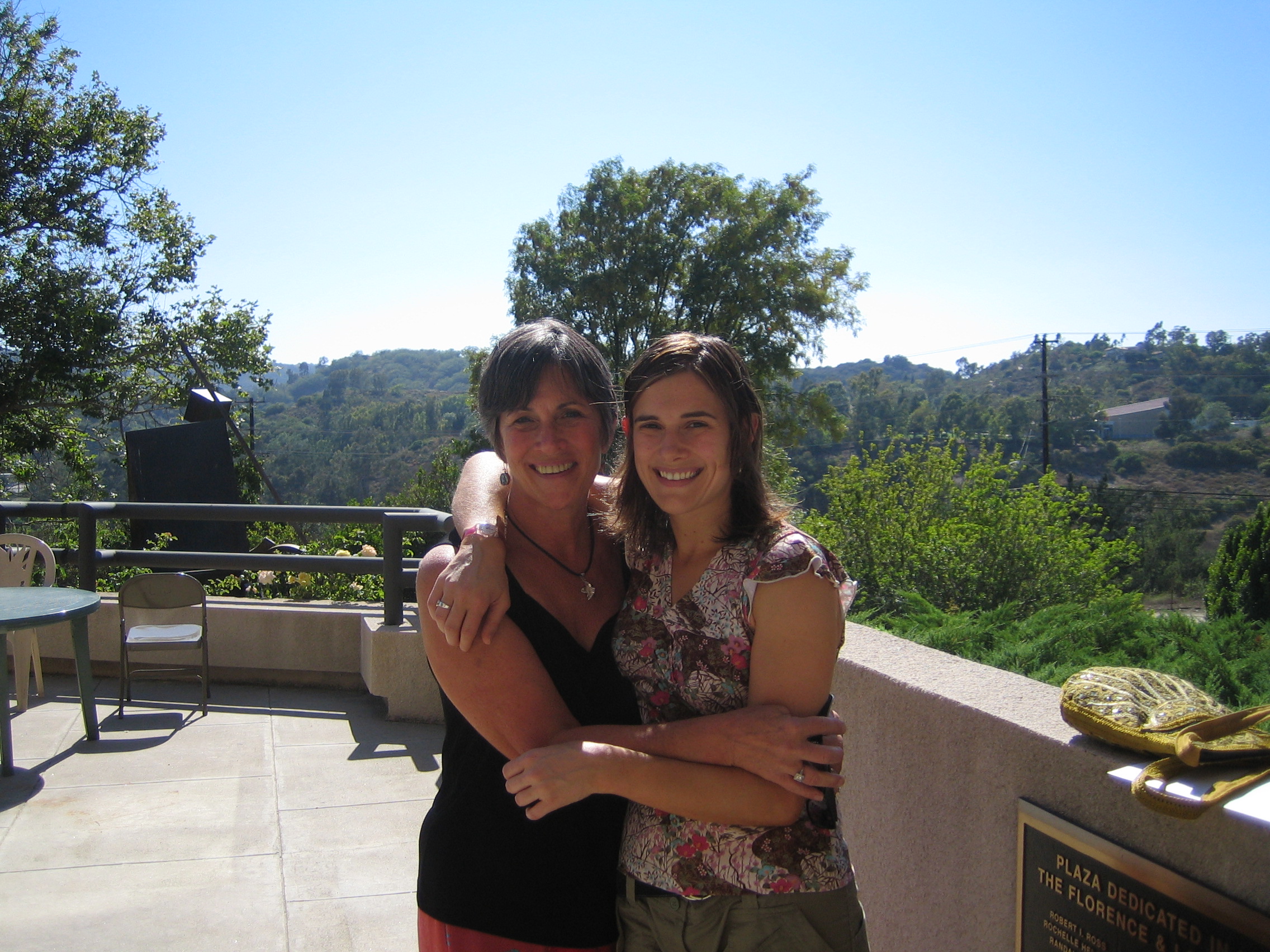Fifteen months after my mother’s death, my family gathered for the unveiling of the gravestone, as is Jewish tradition in the year or so after a loved one dies.
For many, the unveiling bridges the mourning period with the return to life as it once was. So I assumed that on the other side of the bridge, life would be easier and grief more subtle. After all, grief counselors and friends and magazine articles had assured me: “The first year is the hardest.”
During our first meeting, my grief counselor drew a diagram of how grief plays out — with a heavy concentration of emotional “waves” in year one, followed by a more gradual series of peaks and valleys going forward. Friends who had lost a parent told me that in year two, life would begin to feel more predictable, and grief less bottomless.
For me, there’s been a shift from the first year and the second. But it is not from hardest to less hard; it is from one kind of grief to another, in which I mourn for both loss and acceptance.
The day of the unveiling, the sun shone down through a sky laced with wispy clouds, creating an intense August heat — the likes of which Mom always loved, and the rest of us just suffered through. We gathered in front of a rose-colored stone, removing the thin muslin veil with care.
The gravestone was perfect. I, on the other hand, was utterly nauseated. Because the beautiful stone memorialized something I’d been struggling with for weeks. Mom hadn’t just died anymore.
Fifteen months on, it seemed like the universe was telling me that her death was no longer supposed to be the dominant feature of my life. With the unveiling, I had finished the most important steps laid out for me in Jewish tradition, and Judaism now instructed me to focus on my loss during two prescribed days a year. Friends, colleagues and extended family used less care in our interactions, no longer feeling the need to tiptoe around the fragility created by grief.
And yet there were small things I still couldn’t do — like read certain books she had given my daughter or listen to her favorite songs. These little things were among my favorite diversions 15 months earlier. I had thought that if I gave it a year I’d be able to enjoy them again. But that was not the case.
When the seed had just been laid over Mom’s resting place, the black earth stood out like a sore thumb in a sea of gravestones, declaring the newness of my loss. That bareness kept me close to a time when there was no grave, when my mother was very much alive. If denial is a cloak we hide ourselves under, acceptance feels like someone yanking that cloak off your body — revealing that you’re naked underneath, standing in the cold. Which is where I found myself on that hot summer day.
Despite the distance that the calendar put between her death and that August day, I was not ready to accept the fact that Mom was gone, and embrace a future — one filled with adventures, opportunities, challenges, joy and, yes, loss — if my mother wasn’t there to witness it all.
Whether or not the first year is the hardest, I’ll say this much: It is totally unreal. You may break from reality, because your mind needs to, and the world will allow it. But the second year, like the rest of your life, is totally real, and you’ll have to jump in all the way.
The silver lining, as I see it, is that the second year introduces you to the life you can have — one where you carry your grief with you, but perhaps move forward with greater speed and ease. And grief can even open up new pathways — changing the things that matter to you, or propelling you into new interests or communities. But as the mourner’s cloak comes off — and the first-year force field around you dissipates — my advice is simple: Be gentle with yourself. Human emotion rarely responds to deadlines, and the transition from “the mourner” to a person who has experienced loss can be abrupt, sometimes even unwelcome. At least it was for me.
Jessie Boatright works in affordable housing, where the majority of her writing appears in the form of agency memos, reports, and grant applications. She also writes an InterfaithFamily parenting blog, which is informed by her life in Boston with her husband and two daughters.









